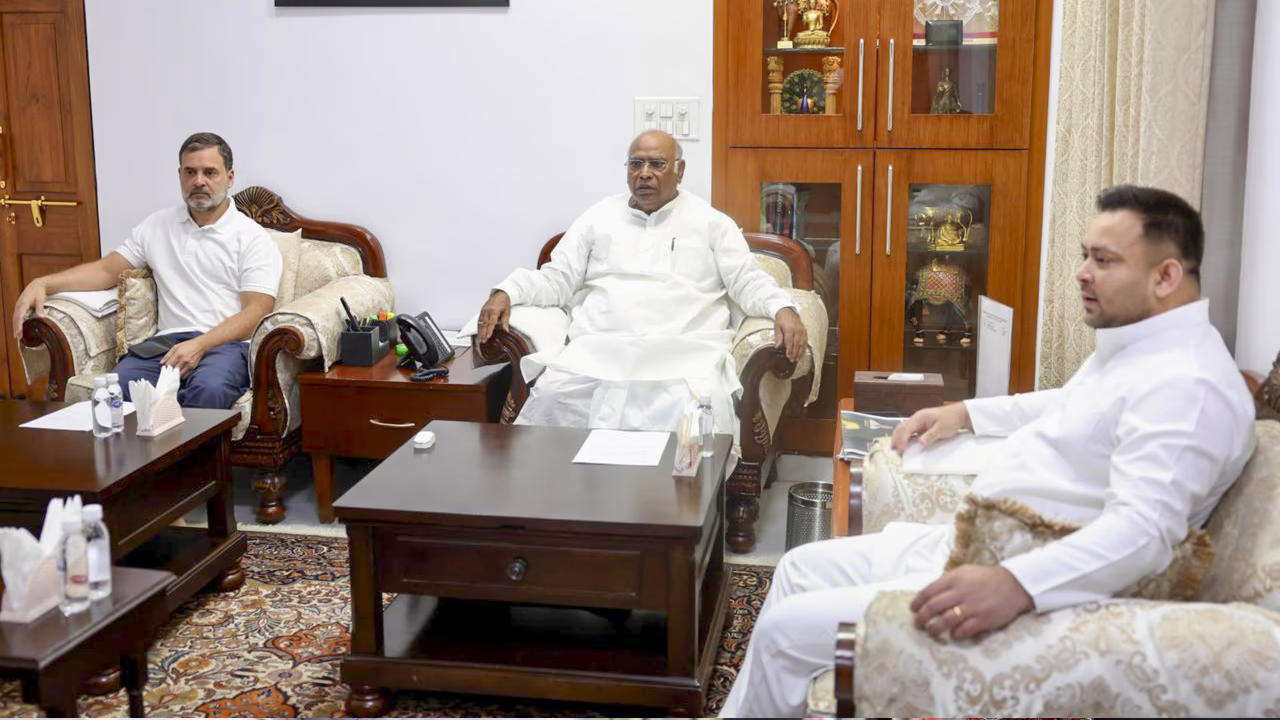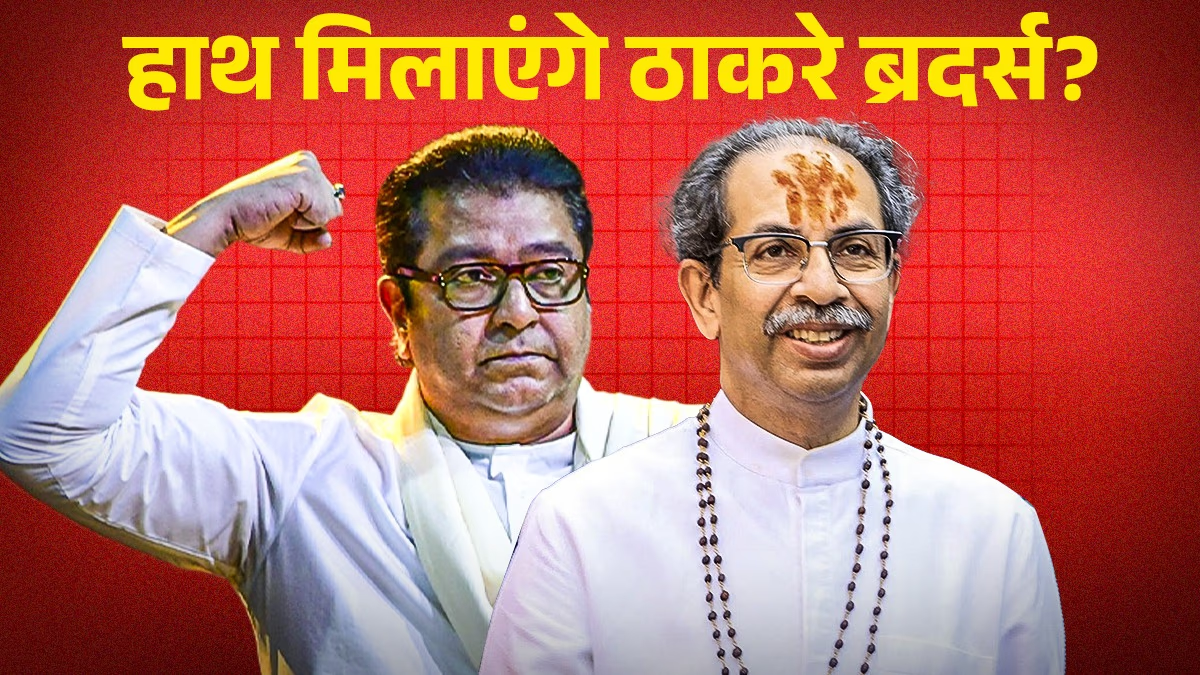This year, Bihar gears up for assembly elections. A significant meeting of the Grand Alliance took place in Patna on Thursday to discuss strategies against NDA and seat-sharing formulas. To enhance coordination, a Coordination Committee was formed, helmed by RJD leader Tejashwi Yadav.
However, there was no consensus among all alliance parties regarding Tejashwi Yadav as the Chief Ministerial candidate. Consequently, no formal announcement followed.
Uncertainty Looms Over Tejashwi as CM Candidate
Before the meeting, it was anticipated that Tejashwi Yadav would be declared the Chief Ministerial candidate, but this did not happen.
According to sources, there was no agreement among the parties on naming Tejashwi Yadav the CM face. This raises the question: Is Congress unwilling to support Tejashwi's candidacy before finalizing seat-sharing with the RJD?
The next Grand Alliance meeting is scheduled for April 24 at Congress' state headquarters, where discussions on seat-sharing and the Chief Ministerial candidate might continue.
Congress' Pressure Politics Explained
Currently, top-level negotiations between RJD and Congress on seat-sharing have begun.
In the 2020 assembly elections, the RJD contested 144 seats and Congress 70, with the remaining 29 seats given to Left parties. Despite the results making RJD the largest party in the alliance with 75 seats, Congress' performance was disappointing—winning only 19 seats and failing Tejashwi Yadav's attempt to form a government.

Source: aajtak
With a strike rate of just 27%, RJD is hesitant to allocate as many seats to Congress this time. Sources suggest that RJD supremo Lalu Prasad is inclined to offer only 50 seats to Congress, against the latter's demand for over 70 seats.
Sources indicate Congress might agree to 5-6 seats fewer, provided they are contested in strong areas where Congress sees a higher chance of winning.
In 2020, Congress was displeased with the allocation of 30 seats where the RJD had historically lost 4-5 times. This time, Congress is not looking to make such mistakes.
Congress's 'Give and Take' Strategy
Congress had accepted 70 seats in 2020, mainly because then-president Akhilesh Prasad Singh didn't push RJD for seats where Congress was stronger. Akhilesh is considered very close to Lalu Prasad.
Akhilesh Prasad Singh's negotiations secured 70 seats, but most were weak ones where both Congress had never been strong, and RJD had lost several times. Hence, Congress managed to win only 19 seats.
Due to Akhilesh Prasad Singh's weak strategy, Congress high command removed him and appointed Rajesh Ram as the new state president in anticipation of the upcoming elections. Additionally, state in-charge Mohan Prakash was replaced by Krishna Allavaru, a close aide of Rahul Gandhi.
Soon after Akhilesh's departure, Bihar Congress' new team adopted a tough stance against RJD, working on a 'No Compromise' policy.
Krishna Allavaru and Rajesh Ram clarified that this time, Congress won't contest the election as RJD's 'B Team'. Perhaps, this explains why Congress isn't inclined to declare Tejashwi Yadav as the CM face before seat-sharing is settled.
Following the first Grand Alliance meeting, at the press conference, Krishna Allavaru remained silent on queries concerning Tejashwi's candidacy declaration.
Congress's firm stance has made it clear to RJD that until Congress receives respectful allotments, including preferred seats, Tejashwi won't be the consensus CM face. Postponing the announcement of Tejashwi's name is part of Congress's strategy to apply pressure on RJD.
Can RJD Afford to Upset Congress?
It's clear that Congress is applying pressure, but the bigger question is whether RJD can risk annoying Congress.
In Bihar's political realm, there's speculation that if Congress doesn't get 70 seats, it might contest the election independently, apart from the Grand Alliance. A similar scenario unfolded in the recent Delhi assembly election where Congress and Aam Aadmi Party didn't form an alliance, leading to losses for both.
In Delhi, Congress couldn't win a single seat, and Aam Aadmi Party suffered a significant defeat, eventually leading to BJP forming the government in Delhi for the first time in 27 years.
RJD understands that if Congress contests separately, it could be detrimental to both parties.
The 2010 Bihar assembly elections are a testament to this. When Congress and RJD contested separately, RJD could only win 22 seats, and Congress was limited to just 4.
RJD knows the pitfalls of pressuring Congress too much, potentially causing both parties damage if Congress goes solo.
For this reason, Congress's altered stance poses a challenge for RJD. Lalu Prasad and Tejashwi Yadav face the task of conceding fewer than 70 seats to Congress without incurring its displeasure.
If Lalu and Tejashwi manage this balancing act, Congress will remain in the alliance, potentially supporting Tejashwi as the Chief Ministerial face.




